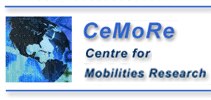

22 January 2014, Seminar, LUMS, LT4 14.00-19.00
23 January 2014, Workshop, InfoLab21 c60 b/c, 9.30-13.00
Participants
Monika Buscher, mobilities.lab, Department of Sociology, Lancaster University, UK
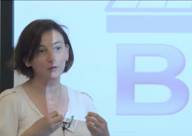 The focus of my studies are everyday material and epistemic practices - on the move or in situ - including experiences and practices of place-making, distributed collaboration, collective intelligence. Consideration of post-human IT-ethics plays a major part in my work. My approach is ethnographic and analytically rooted in ethnomethodology, science and technology studies, mobilities research and phenomenology. My work critically informs participatory, interdisciplinary socio-technical innovation. I co-design socio-technical ubiquitous computing imaginaries and technologies in different settings (from art and architecture to emergency response). I am Director of mobilities.lab and edit the book series Changing Mobilities together wih Peter Adey.
The focus of my studies are everyday material and epistemic practices - on the move or in situ - including experiences and practices of place-making, distributed collaboration, collective intelligence. Consideration of post-human IT-ethics plays a major part in my work. My approach is ethnographic and analytically rooted in ethnomethodology, science and technology studies, mobilities research and phenomenology. My work critically informs participatory, interdisciplinary socio-technical innovation. I co-design socio-technical ubiquitous computing imaginaries and technologies in different settings (from art and architecture to emergency response). I am Director of mobilities.lab and edit the book series Changing Mobilities together wih Peter Adey.
Markus Bylund, SICS Swedish ICT, Sweden
 Markus Bylund is a senior scientist at the Swedish Institute of Computer Science. Bylund holds a PhD (2005) in Computer and Systems Sciences from the Royal Institute of Technology (KTH) in Stockholm, Sweden. He received both his MSc (1999) and PhLic (2001) from Uppsala University, Sweden, in part based on studies (1996-1997) from the University of Colorado at Boulder (CU), USA.
Markus Bylund is a senior scientist at the Swedish Institute of Computer Science. Bylund holds a PhD (2005) in Computer and Systems Sciences from the Royal Institute of Technology (KTH) in Stockholm, Sweden. He received both his MSc (1999) and PhLic (2001) from Uppsala University, Sweden, in part based on studies (1996-1997) from the University of Colorado at Boulder (CU), USA.
Franco Curmi, Computing, Lancaster University
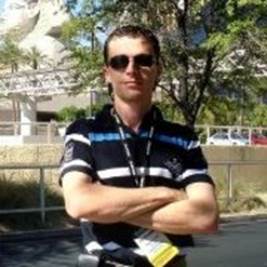
Franco is a Ph.D. student at Lancaster University and a visiting lecturer at the University of Malta. He was awarded a Master in Creativity and Innovation from the University of Malta (2010) and a Master in Digital Innovation (2012) from Lancaster University both with distinction. Prior to this he held managing positions in technology companies where he provided services for clients including CNN, Pfizer, Sony and Philips. His current research looks into the design of innovation strategies for crowdsourcing social support. The work takes a human-computer interaction perspective and focuses on building communities around users that are conducting challenging tasks.
Daniel Heery, Cybermoor, http://www.cybermoor.org
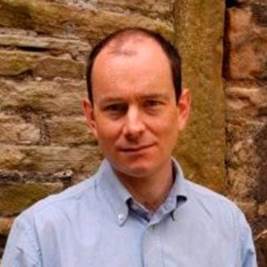
Daniel established Cybermoor, the first rural broadband co-operative providing wireless first generation broadband to the community of Alston Moor in Cumbria. Daniel advises community organisations, the public and private sector on how the innovative use of technology can make a real difference to people’s lives. He has worked on projects to transform the delivery of public services by social enterprises using technology. Working with the NHS in Cumbria to develop e-health services highlighted some of the challenges around accessing public data to redesign services - it was challenging to access up to date information. Without access to accurate data, it is increasingly difficult for communities to shape the services they need, so Cybermoor has started to work on projects which increase access and take up of open data. Daniel is also a founder member of the Independent Networks Co-operative Association and has been a Social Enterprise Ambassador sponsored by the Cabinet Office. Daniel has a Degree and Masters in Town Planning from the University of Newcastle upon Tyne.
Michael Liegl, mobilities.lab, Department of Sociology, Lancaster University, UK
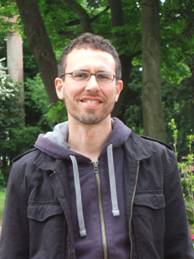 My work focuses on the interplay of technology, spatial organization and social relations. In my Phd Digital Cornerville I studied the impact of ubiquitous computing, filesharing, and network technologies as well as the very notion of ‘network’ within the organization of an urban artistic community and its audio-visual practices. I especially focused on the layering and hybridization of online and offline collaboration. I further pursue this interest in hybrid spaces in studying the place making practices of digitally mobile creative freelancers and in location based social networks such as the GPS enabled smartphone dating app grindr. Currently, I work as a research associate in a work package on social, legal and ethical implications of IT supported emergency response in the Bridge project (Bridging resources and agencies in large-scale emergency management) http:/bridgeproject.eu/en.
My work focuses on the interplay of technology, spatial organization and social relations. In my Phd Digital Cornerville I studied the impact of ubiquitous computing, filesharing, and network technologies as well as the very notion of ‘network’ within the organization of an urban artistic community and its audio-visual practices. I especially focused on the layering and hybridization of online and offline collaboration. I further pursue this interest in hybrid spaces in studying the place making practices of digitally mobile creative freelancers and in location based social networks such as the GPS enabled smartphone dating app grindr. Currently, I work as a research associate in a work package on social, legal and ethical implications of IT supported emergency response in the Bridge project (Bridging resources and agencies in large-scale emergency management) http:/bridgeproject.eu/en.
Suvodeep Mazumdar, Computer Science, Sheffield University
 My research concerns Human Computer Interaction and Information Visualisation applied in the context of Organisational Knowledge Management and Emergency Response. The focus of my work is to develop visual analytic solutions to assist knowledge workers gain quick insights into large multidimensional datasets. I employ iterative user-centered design techniques to prototype and develop the solutions, which are further evaluated by user communities.
My research concerns Human Computer Interaction and Information Visualisation applied in the context of Organisational Knowledge Management and Emergency Response. The focus of my work is to develop visual analytic solutions to assist knowledge workers gain quick insights into large multidimensional datasets. I employ iterative user-centered design techniques to prototype and develop the solutions, which are further evaluated by user communities.
Sung-Yueh (Shaun) Perng, Programmable City project, NUI Maynooth, Ireland
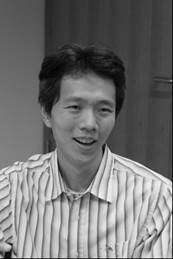
Shaun Perng is a Postdoctoral Researcher on the Programmable City project, exploring practices of incorporating codes and mobile technologies into everyday life in Dublin and Boston. I obtained my PhD from Sociology Department at Lancaster University on the topic of mobilities and changing everyday practices. Before joining NIRSA in 2013, I participated in the BRIDGE project, examining new opportunities and tension when incorporating citizens and social computing into emergency response. I was also a team member of an impact study of FutureEverything on how digital and locative arts challenges and changes Manchester and event participants.
John Rooksby, Computer Science, University of Glasgow
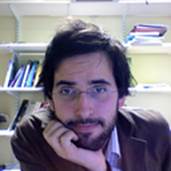
I'm interested in how people develop and use technology. My research is at the intersection of
- Sociology, Psychology and Computing. My work focuses on:
- Sociotechnical approaches for systems development.
- Real-world practices of design, development, and use.
- Social software and systems.
The research areas that I am active in are Human Computer Interaction (HCI), Computer Supported Cooperative Work (CSCW) and Software Engineering.
Jen Southern, Lancaster Institute of Contemporary Arts, Lancaster University, UK
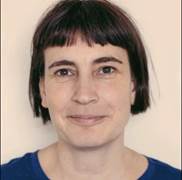
Jen Southern is an artist and Lecturer in LICA at Lancaster University, where she is affiliated to the Centre for Mobilities Research (CeMoRe) and mobilities lab. Her recent fieldwork has taken her out walking with ramblers groups and footpath societies, on a flight with a flying instructor, and to meet a researcher who uses GPS to track reindeer. Her art practice is collaborative, process based and participatory, working with audiences to explore movement and sense of place through mobile technologies and locative media. She works across the disciplines of participatory art, sociology and mobile application design, and has contributed to international projects and workshops funded by NESTA, BBC, Arts Council England and Sagasnet.
Alex Taylor, Microsoft Research, Cambridge, UK
 As a sociologist at Microsoft Research, I've undertaken investigations into a range of routine aspects of everyday life - with a particular emphasis on life at home. For instance, I've shown what some might describe as an unhealthy preoccupation with hoarding, dirt, clutter and similar seemingly banal subject matter.
As a sociologist at Microsoft Research, I've undertaken investigations into a range of routine aspects of everyday life - with a particular emphasis on life at home. For instance, I've shown what some might describe as an unhealthy preoccupation with hoarding, dirt, clutter and similar seemingly banal subject matter.
Most recently, I have begun obsessing over the entanglements of computation and social life. My studies in this realm have taken me from the intelligence found in robots and other curious ‘thinking’ machines, to DIYbio and more broadly the role of algorithms in the sciences.
Much of this work has been considered alongside the design of computing technology. Rather than informing design directly, however, I've sought with varying success to open up the possibilities for different and hopefully new ways of interacting with technology. A further aim has been to reflect on the ever emergent relations between humans and machines, and to wonder what the unceasing developments in science and technology might mean for being human. In all, my work amounts to a struggling through, not to produce definitive answers, but, with an eye for the troubles, and hopefully finding along the way some productive questions.
Tel: +44 (0) 1524 592680 Fax: +44 (0) 1524 594256 E-mail: Pennie Drinkall
